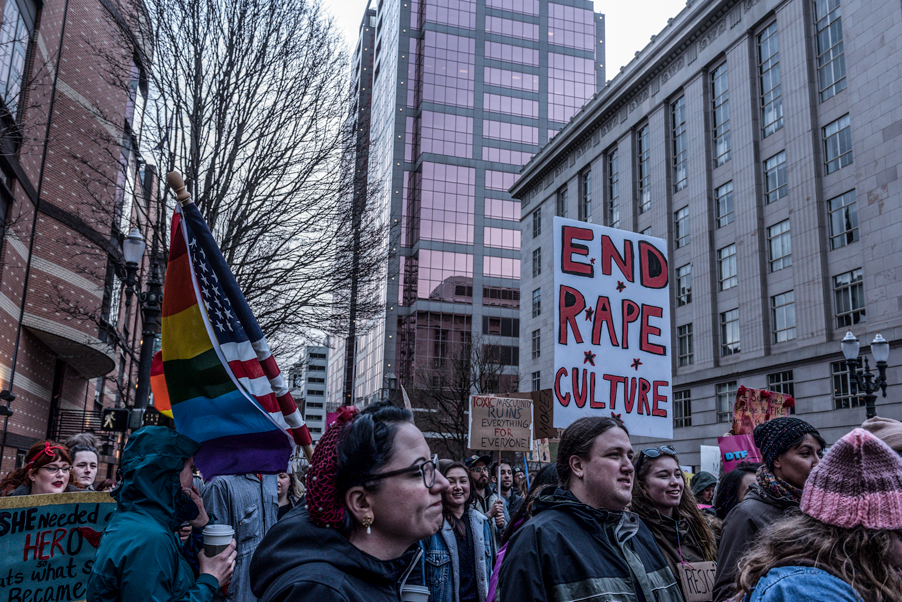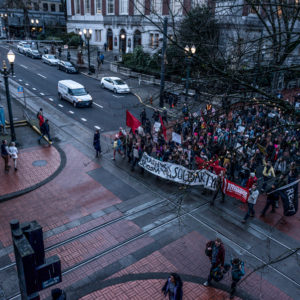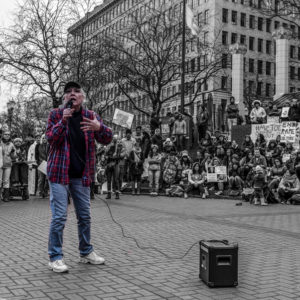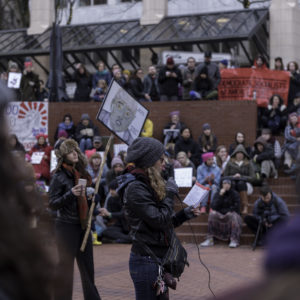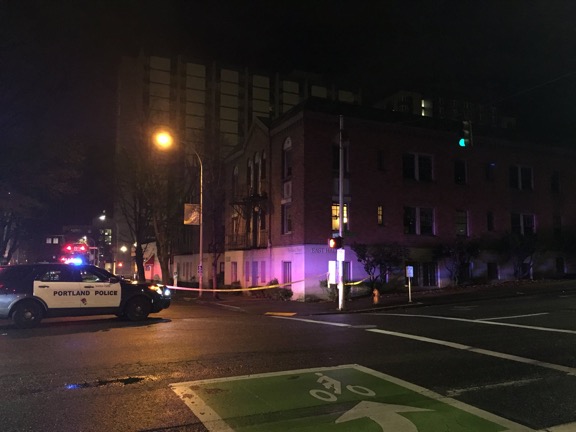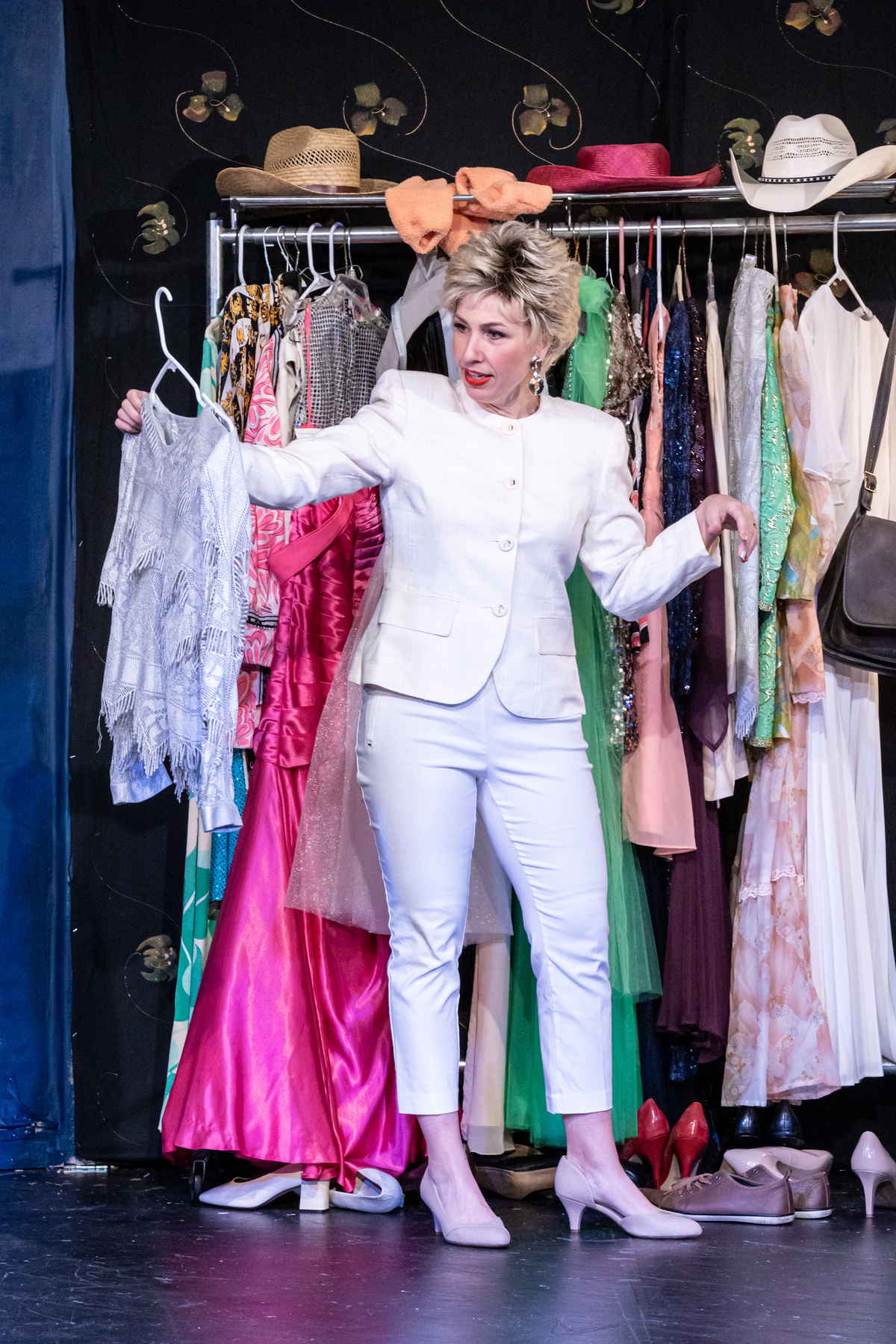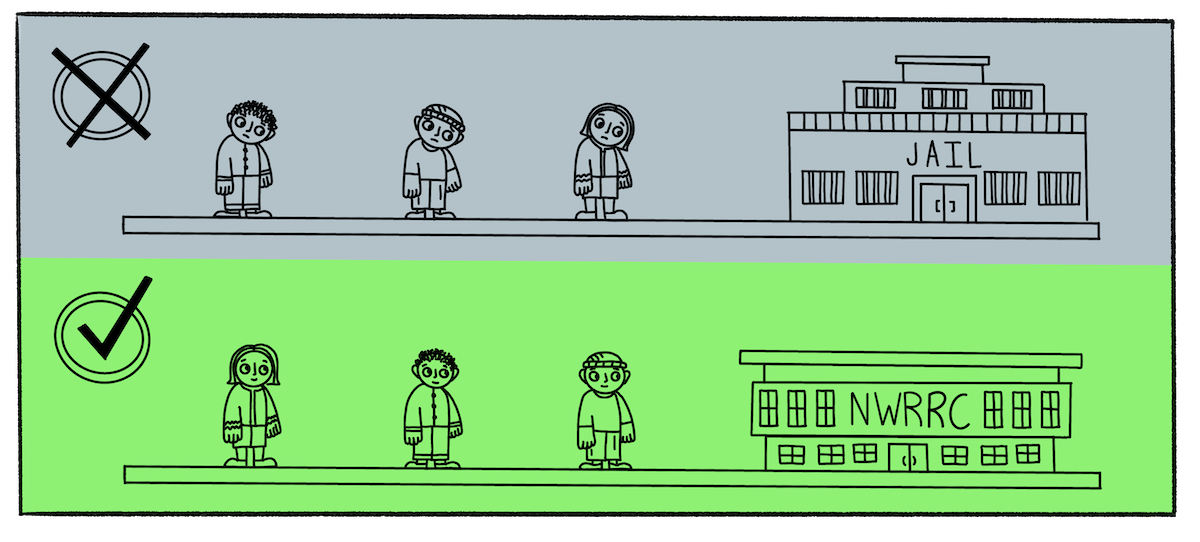Click on the images to view.
Over 200 protesters and activists spoke out against sexual assault during the #MeToo Speakout and March hosted by Socialist Alternative Portland Saturday, Jan. 20. The day marked one year since the Women’s March in protest of President Donald Trump’s inauguration.
On the event’s Facebook page, Portland State student and lead organizer of the march Olivia Pace said the event would create a safe space where victims of sexual violence were encouraged to share their own experiences.
“#MeToo means coming together,” said Nicole Adams, protester and Oregon State University student. “It means standing up for other people who are still too afraid to speak up for themselves like I used to be. We’re not going to be quiet anymore.”
“I’m tired of being quiet,” Adams added. “We don’t deserve to be treated the way we’re treated, and we need to stop being silent and stand up for ourselves.”
Though several other protests filled downtown Portland’s streets on Saturday, the #MeToo march remained peaceful. A handful of police on motorcycles trailed behind and observed.
The march started at Pioneer Courthouse Square and moved south to PSU, then through the Park Blocks and back toward the city center. The marchers chanted, “MeToo coming into the streets, no justice, no peace.”
Pace posted a video on the event’s Facebook page elaborating on the goal and mission of the march.
“A society that sends us the message that those who are not cisgender men are inherently subordinate,” Pace said. “[This] effectively creates a culture that premises sexual violence toward them, infecting those with privilege they can leverage in this society to believe they have a right to take advantage of our bodies.”
“This reality is especially acute for trans women and women of color,” Pace added. “Because of this, this fight must be aimed at the entirety of the white supremacist capitalist heteropatriarchal systems which create the conditions under which we so frequently suffer this kind of violence. The #MeToo movement has been critical in reaching a new level of consciousness across our society about the prevalence of sexual violence.”
The #MeToo movement, founded by Tarana Burke in 2006, initially started to “support survivors of sexual violence, in particular black and brown girls,” Burke said in an interview with Business Insider. “It has grown since then to include supporting grown people, women, and men and other survivors, as well as helping people to understand what community action looks like in the fight to end sexual violence.”
As dozens of women brought allegations of sexual assault against movie mogul Harvey Weinstein, United States Sen. Al Franken, former Alabama Senate candidate Roy Moore, Trump and other influential men in 2017 and 2018, the hashtag spread across social media, used by women, men and others to publicly share their experiences with sexual violence.
Many attendees of the march emphasized that feminism does not have to take the body of any specific type of person.
Grace Sobieralski, a student at Portland Community College and speaker at the event, said the movement inspired them to attend the march because they are a victim of rape. “I belong in this movement,” Sobieralski said.
“I feel like every woman has experienced some belittling,” said Laura Lee, protester and activist. “Some stories are definitely more severe than others, but as females, everyone has experienced it, and men too.”
Lee attended the march with activist Danielle Clark who said the #MeToo movement means “exerting power for those who can’t fight for themselves and those that are put in a position where they [say] ‘I need this job, need this paycheck, and can’t do anything about it, other than take it.’”
“#MeToo means I’m fighting back,” Clark said. “#MeToo means no more. People need to get involved. If you don’t do the work, it’s not going to happen. So get out there, do the work, and make the change.”
The Socialist Alternative Portland will host a public meeting on Wednesday, Jan. 24, in SMSU 294 to discuss the ‘Socialist Approach to Fighting Rape Culture.’

